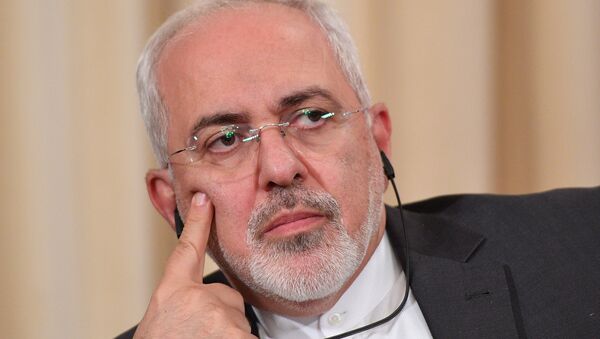Washington has decided not to impose sanctions on Iranian Foreign Minister Mohammad Javad Zarif for now, Reuters reported, quoting two sources familiar with the situation.
Washington imposed new "hard-hitting" sanctions on Iran over its alleged “hostile conduct” in June, with US President Donald Trump tying them to the downed US drone incident over the Strait of Hormuz at first, but later revealing that they would have been rolled out eventually anyway. The sanctions targeted Iran's Supreme Leader Ayatollah Ali Khamenei and those "close to him," as well as 8 senior members of the Islamic Revolutionary Guard Corps.
Accorting to a source quoted by Reuters, US Secretary of State Mike Pompeo had opposed blacklisting Zarif “for the time being.” “Cooler heads prevailed. We … saw it as not necessarily helpful,” the source reportedly said.
Meanwhile, last Sunday Pompeo warned Iran of "further isolation and sanctions," following Tehran's recent move to exceed the nuclear deal uranium enrichment limit and its promise to reduce the nation's commitment to the Iran nuclear deal every 60 days if the issue is not resolved. The administration of US President Donald Trump fully withdrew from the 2015 Iran deal, also known as the Joint Comprehensive Plan of Action (JCPOA) treaty on 8 May 2018 and reimposed sanctions on Iran. The deal provides for the gradual lifting of sanctions imposed on Iran by the United Nations Security Council, the United States and the European Union in exchange for Tehran's guarantee that the country's nuclear program would remain peaceful. A year after Washington's withdrawal, Tehran announced that it would suspend some obligations under the agreement, giving the other nuclear deal signatories - France, Germany, the United Kingdom, Russia, China, and the European Union - 60 days to save the accord by facilitating oil exports and trade with Iran amid US sanctions.




